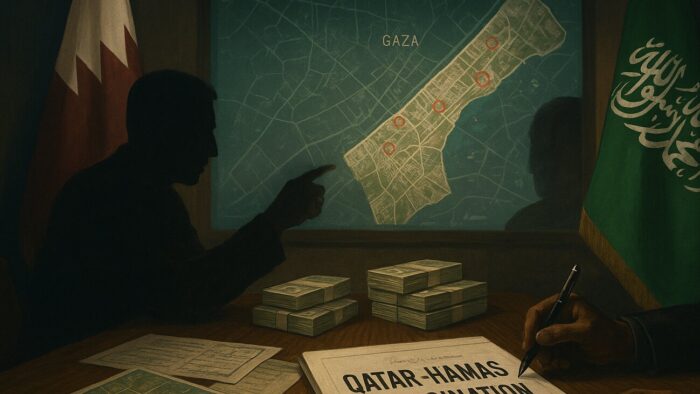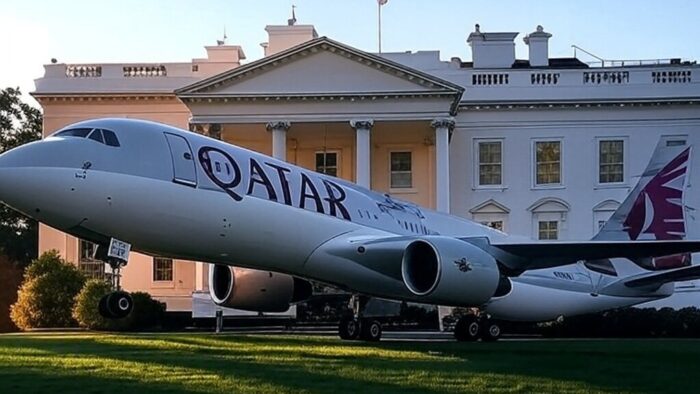The recent attack on Hamas leaders in Doha is testing Qatar’s DC influence as Israel’s strike highlights Qatar’s decade-long lobbying and diplomatic ties with the Trump administration. On 12 September 2025, POLITICO reported that Israel’s missile strike on Hamas representatives has sharply underscored the depth of Qatar’s lobbying and diplomatic relationships in Washington, cultivated over the past decade. The article begins:
With help from Daniel Lippman. The Trump administration’s rush to reassure and placate Qatar following the Israeli strike against Hamas representatives in Doha is highlighting the tight relationship between the two countries — a relationship that Qatar has done much to nurture in recent years. While Qatar has long hosted the largest U.S. airbase in the Middle East, it also has built up a sizable operation in Washington over the past decade, and courted President DONALD TRUMP personally. Prime Minister Sheikh MOHAMMED BIN ABDULRAHMAN AL THANI is close with Trump, and the Trump Organization is building a golf resort in the tiny Gulf country. And of course there’s that infamous plane. Doha also has spent the last decade paying dozens of lobbyists (including Trump appointees like Attorney General PAM BONDI), buying stakes in the capital’s sports teams and investing directly in Newsmax. Now Israel’s missile strike is testing Qatar’s cultivation of its U.S. ties.
Key Points
-
Qatar has emerged as the seventh-largest spender on lobbying in Washington over the past decade, investing heavily in relationships with US political figures, including direct courtship of President Trump and his family, as well as financing prominent Washington events and media ventures.
-
Following the Israeli strike in Doha, the Trump administration took the unusual step of both privately reprimanding Israeli Prime Minister Netanyahu and publicly supporting a United Nations statement condemning the attack, highlighting Qatar’s ability to elicit a sympathetic US response despite hosting Hamas leadership.
-
Qatar’s diplomatic strategy includes hosting the largest US military base in the Middle East, facilitating high-profile business deals, and positioning itself as a neutral mediator in regional conflicts, which has shielded it from harsher criticism in Washington over its ties to groups like Hamas and the Taliban.
-
Despite these efforts, analysts caution there are limits to Qatar’s influence, as seen in the muted US reaction to the Doha attack and the ongoing scrutiny from some Republicans, suggesting that Qatar’s lobbying machine may face new challenges in the wake of heightened Middle Eastern tensions.
Qatari Influence on Washington: A Long and Complex History
Qatar’s Washington strategy blends endowments, think tank grants, and calibrated lobbying with a growing media footprint built through the expansion of Qatar Media City to shape production capacity and elite discourse. After 2024, outreach intensified toward conservative ecosystems via FARA-documented influence efforts targeting right‑wing media, including consultant-led messaging campaigns and a notable rise in targeted operations aimed at partisan-aligned channels and audiences.
Bipartisan access-building remains central, reflected in the shift from Trump-aligned operators to Democratic consulting firms during the 2020 realignment. The access is sustained by expanded K Street engagements that increased spend and touchpoints across Washington, However, counter influence efforts are seen in Senate scrutiny of the Brookings relationship and associated influence concerns alongside leadership fallout at Brookings connected to lobbying investigations.
The Qatari operational playbook also features rapid firm acquisitions, as seen in adding a fourth U.S. lobbying firm within a single year to deepen policy access, while independently tracked registries show extensive FARA registrants and filings that align with crisis diplomacy and mediator branding during the Doha strike and subsequent high-level meetings in New York.
External references:
The Global Influence Operations Report (GIOR) employs AI throughout the posting process, including generating summaries of news items, the introduction, key points, and often the “context” section. We recommend verifying all information before use. Additionally, images are AI-generated and intended solely for illustrative purposes. While they represent the events or individuals discussed, they should not be interpreted as real-world photography.











